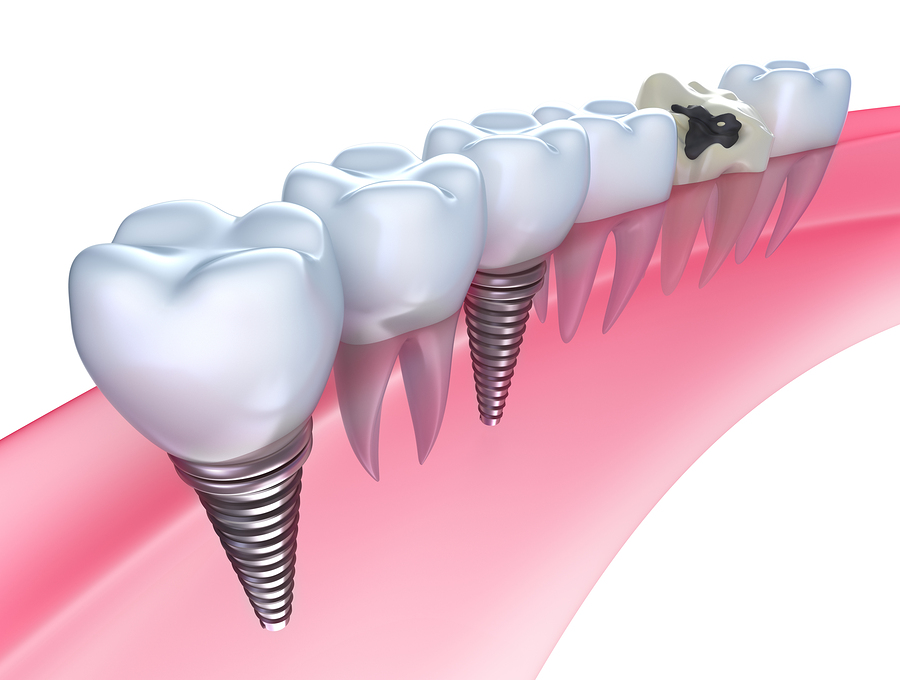What is a dental implant?
Implants are titanium posts that are surgically placed into your jawbone underneath your gums. These are the foundation for a replacement tooth and act as non-synthetic tooth roots.
Benefits of implants
- They are unobtrusive, looking and feeling like natural roots and teeth.
- They’re the closest thing to a real tooth).
- Having implants makes you less likely to lose teeth in the future, as your jawbone is preserved.
- The surgery surrounding implants is not invasive as it can be with dental bridges.
- Implants are locked onto your bone and therefore feel like a normal part of your mouth and not synthetic. This also means there are no unwanted side effects of chance of your body rejecting it.
- You can care for your implants in the same way as normal teeth. By brushing for 2 minutes at a time and flossing regularly, you can keep your implant healthy.

What does having a dental implant involve?
You will have an x-ray so that your dentist here at Paul Lowe can study the positioning of your teeth and the condition of your jaw. Your jaw needs to have strong bone density to support an implant, which is why this is necessary.
Your dentist will drill a hole that matches the size of your implant- into your bone. Once you have had these holes drilled, your dentist can attach your custom-made bridge.
Your dentist will re-open the gum incision and fit an abutment which acts as a connection between your replacement tooth and your implant. If you have chosen to have several missing teeth replaced, this process will be repeated for each new tooth.
Why replacing missing teeth is vital
Many people think that the only teeth worth replacing or investing time into are the front teeth. However, any missing tooth can affect your overall health.
Physical health is not the only thing that can affect a person’s wellbeing where missing teeth are concerned. A missing tooth can be a driver of low self-esteem and prevent people from wanting to smile. Having an implant fitted is a worthwhile investment that can affect a patient’s whole future.
Caring for your implant
You can care for your implant in the same way as you would care for your natural teeth. This is because they aren’t synthetic, so you can continue brushing your teeth twice a day for 2 minutes per day, flossing regularly and making regular appointments with your dentist and dental hygienist.
